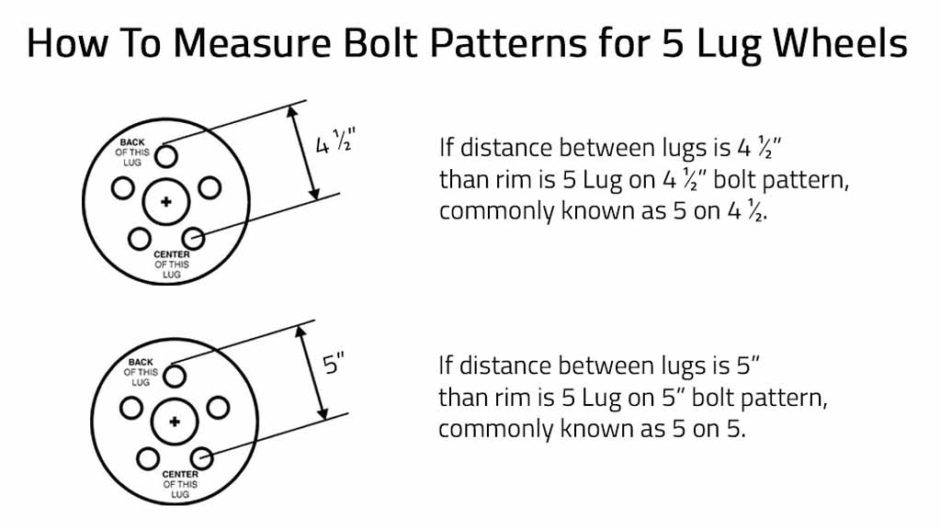Ever stared at a lug nut, wondering about its cryptic dimensions? You're not alone. Knowing your lug nut size is crucial, preventing frustrating trips to the auto parts store and ensuring your wheels are securely attached. This guide dives deep into the art of lug nut measurement, providing you with the knowledge to confidently tackle this essential automotive task.
Wheel fitment is a delicate dance of measurements, and lug nuts play a pivotal role. An improperly sized lug nut can lead to stripped threads, loose wheels, or even wheel detachment, resulting in dangerous driving conditions. Understanding how to determine lug nut dimensions empowers you to maintain your vehicle's safety and performance.
From the early days of automobiles, lug nuts have undergone a quiet evolution, adapting to changing wheel designs and performance demands. Initially simple fasteners, they've become precisely engineered components, crucial for secure wheel attachment. Determining the correct lug nut size isn't just about finding a nut that fits; it's about selecting the right component for your specific vehicle make and model.
The main issue surrounding lug nut sizing is the lack of readily available information and the seemingly complex measuring process. Many car owners rely on guesswork or visual comparisons, which can lead to incorrect sizing. This guide aims to demystify the process, providing clear and concise instructions for accurate measurement.
Measuring a lug nut involves determining three key dimensions: thread size, hex size, and seat type. The thread size refers to the diameter and pitch of the threaded portion that engages with the wheel stud. Hex size is the distance between two opposite flats of the hexagonal nut head. The seat type describes the shape of the nut's base, which interacts with the wheel's mounting surface. These three measurements are essential for proper fitment.
Knowing your lug nut size offers several advantages. First, it ensures proper wheel installation, promoting safety and preventing damage. Second, it simplifies the process of purchasing replacement lug nuts, saving you time and frustration. Third, correctly sized lug nuts contribute to optimal wheel performance and longevity.
To measure thread size, use a thread pitch gauge. Align the gauge's teeth with the nut's threads until a snug fit is achieved. The corresponding measurement on the gauge indicates the thread size. For hex size, use calipers to measure the distance between two opposite flats of the hex head. To identify the seat type, compare the nut's base to images of common seat types (conical, flat, ball).
Best practices include using the correct measuring tools, cleaning the lug nut before measurement, and double-checking your measurements for accuracy. Consider consulting your vehicle's owner's manual or a reputable online resource for specific lug nut specifications.
Advantages and Disadvantages of Accurate Lug Nut Measurement
| Advantages | Disadvantages |
|---|---|
| Ensures safety | Requires specific tools |
| Simplifies replacement | Can be time-consuming for novices |
| Optimizes wheel performance |
FAQ:
Q: What happens if I use the wrong size lug nut? A: This can lead to stripped threads, loose wheels, or even wheel detachment.
Q: Where can I find my vehicle's lug nut specifications? A: Check your owner's manual or consult a reputable online resource.
Q: What tools do I need to measure lug nuts? A: You'll need a thread pitch gauge and calipers.
Q: What are the different types of lug nut seats? A: Common seat types include conical, flat, and ball.
Q: How often should I check my lug nuts? A: It's good practice to check your lug nuts after tire rotations or any wheel-related work.
Q: Can I reuse old lug nuts? A: While sometimes possible, it's generally recommended to replace lug nuts when installing new wheels.
Q: How do I know if my lug nuts are torqued correctly? A: Use a torque wrench to tighten lug nuts to the manufacturer's specified torque.
Q: What are some signs of a loose lug nut? A: Unusual vibrations or noises coming from the wheel area could indicate a loose lug nut.
Tips and tricks for measuring lug nuts include using a well-lit area for clear visibility and practicing on spare lug nuts before measuring those on your vehicle. Keep your measuring tools clean and calibrated for accurate results.
In conclusion, knowing how to measure lug nut size is a fundamental aspect of vehicle maintenance. It empowers you to ensure the safety and performance of your vehicle, preventing potential hazards and costly repairs. By understanding the key dimensions – thread size, hex size, and seat type – and utilizing the correct measuring tools, you can confidently tackle this essential task. Don't underestimate the importance of this seemingly small component. Accurate lug nut measurement is a simple yet crucial step towards a safer and smoother driving experience. Take the time to familiarize yourself with the process and equip yourself with the right tools. Your wheels – and your safety – will thank you. By mastering this skill, you're taking an active role in maintaining your vehicle's well-being and ensuring a secure and enjoyable driving experience for years to come. So, grab your tools, and let's get measuring!
How to Measure Lug Spacing - Trees By Bike
Chevrolet 6 Lug Bolt Pattern - Trees By Bike
Trailer Wheel Nut Torque Chart - Trees By Bike
2024 Chevy 2024 Bolt Pattern Chart - Trees By Bike
Lug Nut Thread Size Chart - Trees By Bike
Wheel Lug Nut Size Guide Torque Spec Chart 56 OFF - Trees By Bike
Chevy Malibu Wheel Bolt Pattern - Trees By Bike
how to measure lug nut size - Trees By Bike
Challenger Wheel Bolt Pattern - Trees By Bike
How To Measure Wheel Lug Spacing 5x45 - Trees By Bike
Chevy 8 Lug Pattern Size - Trees By Bike
2013 Ford F 150 Bolt Pattern 6 Lug - Trees By Bike
Chevy Silverado Wheel Bolt Pattern - Trees By Bike
Chevy 6 Lug Bolt Pattern - Trees By Bike
2009 Ford F150 Lug Pattern - Trees By Bike














